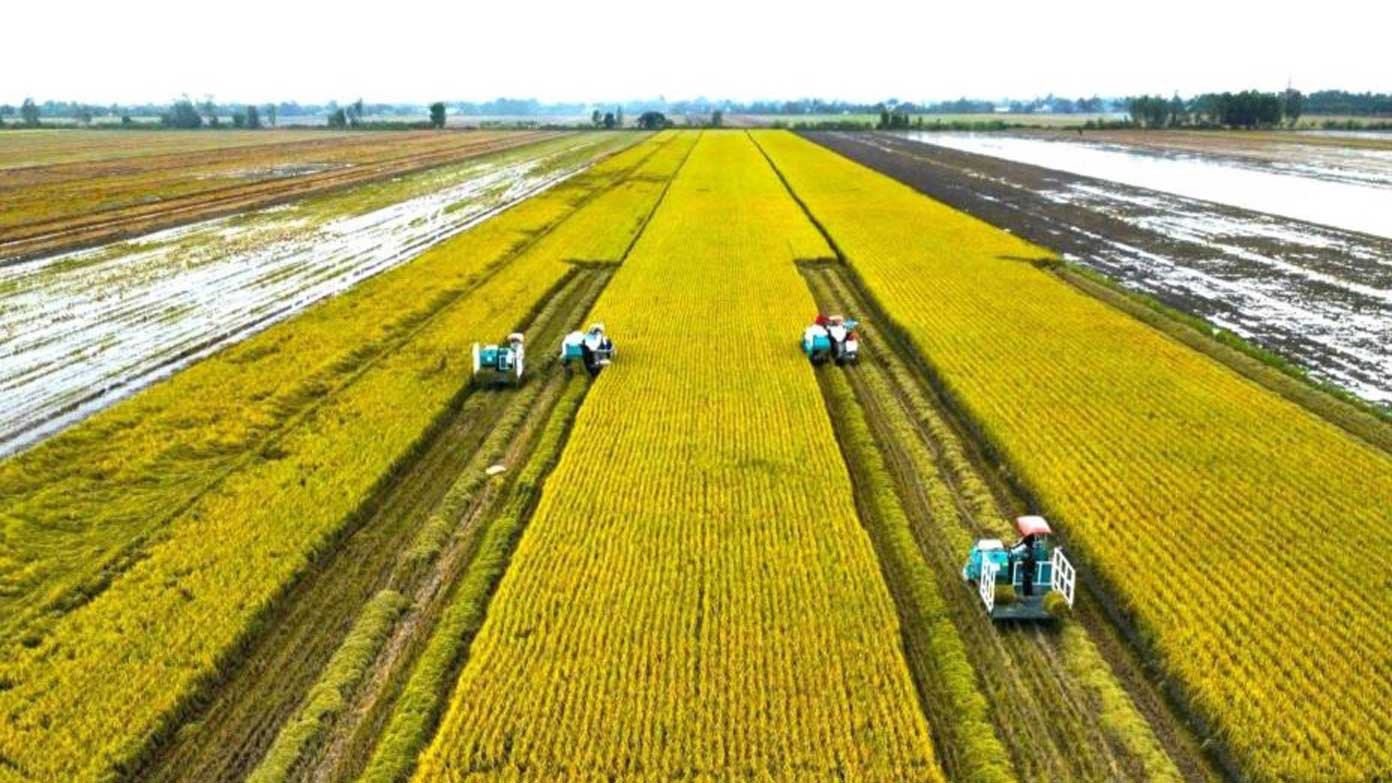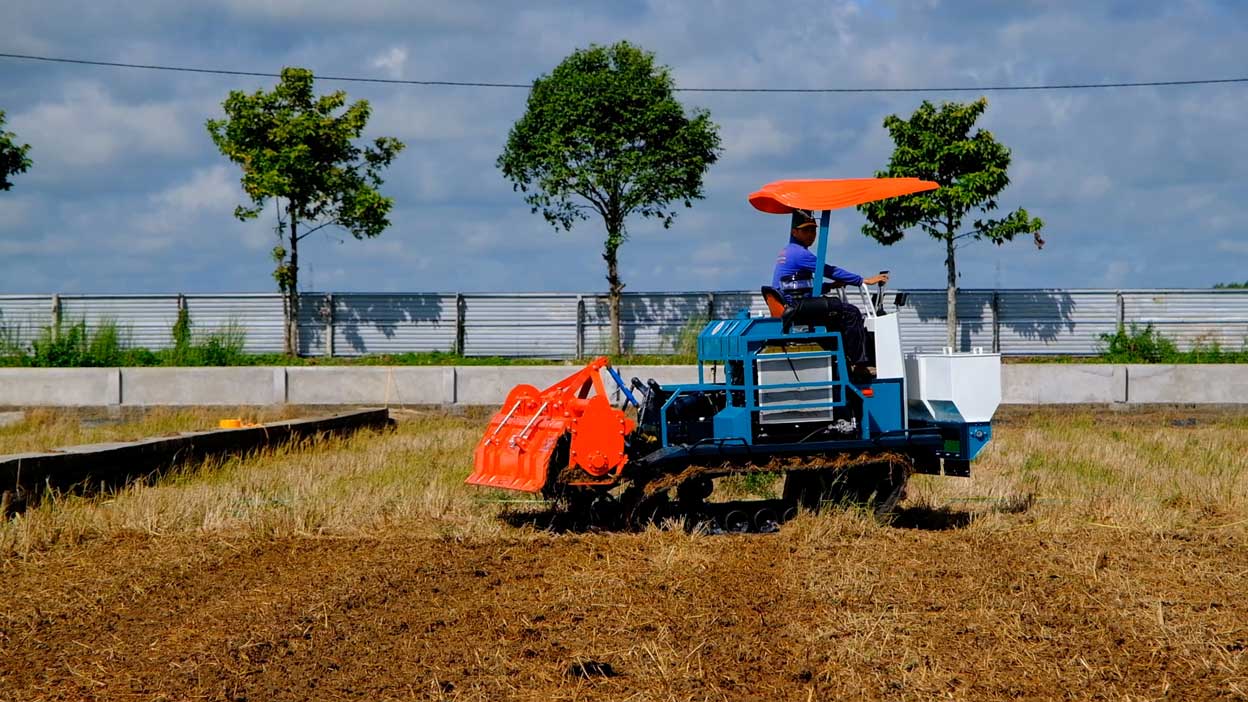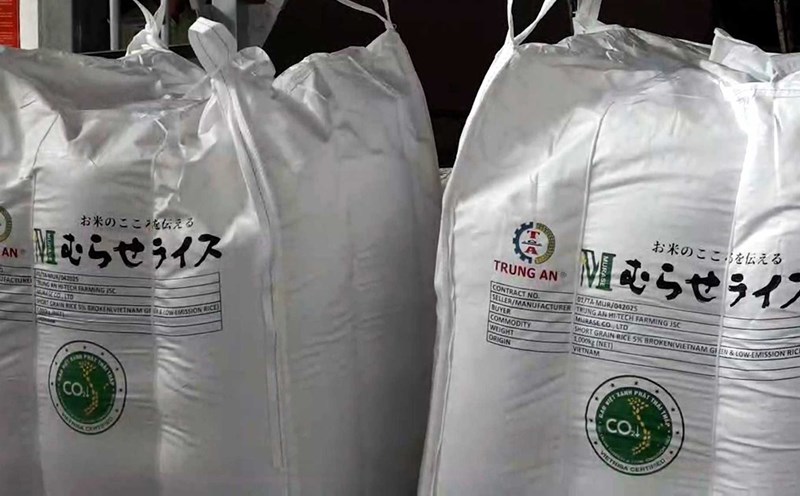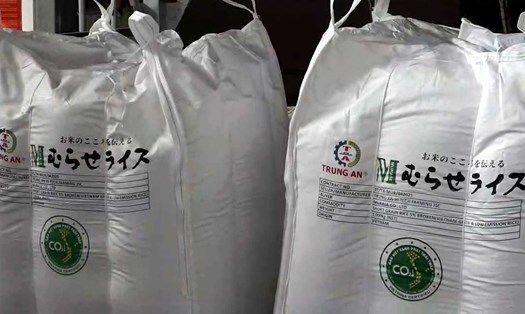Open market
In the context of domestic and world consumers increasingly prioritizing green and clean products, the Vietnamese rice industry has actively changed with new production methods, reducing greenhouse gas emissions.
The project "Sustainable development of one million hectares of high-quality and low-emission rice cultivation associated with green growth in the Mekong Delta (MD) by 2030" not only helps reduce input costs, increase productivity but also gradually meets the needs of export and domestic markets, opening up opportunities to increase the value of Vietnamese rice.

Mr. Pham Thai Binh - Chairman of the Board of Directors, Deputy General Director of Trung An High-Tech Agricultural Joint Stock Company (the first Vietnamese enterprise to export the first batch of low-emission green rice to Japan) - said that currently, the demand for high-quality, low-emission rice products is at a high level, while the supply is not enough. This shows that the room for Vietnam's rice exports is still very open.
For the domestic market alone, Vietnamese consumers accept spending more money to buy rice products to ensure food safety and hygiene. In particular, with organically produced products, consumers are now willing to accompany the manufacturer.
Also one of the enterprises granted the right to use the Green Vietnamese Rice low-emission brand, Mr. Truong Van Chinh - Director of Chon Chinh Import-Export Company Limited - said that the unit has offered rice products to reduce emissions and received positive reviews from customers. Accordingly, South Africa, Ghana, and the Middle East are the markets where companies export low-emission green Vietnamese rice brands produced by their units.
Potential of agricultural digitalization
To produce green, clean products that meet the criteria for emission reduction, applying digitalization in agriculture and exploiting high-quality human resources is a necessary factor. This helps optimize the entire production process, while closely monitoring carbon emissions and using resources effectively.

During the production process of quality rice, ensuring the criteria set by the importing country, Mr. Chinh said that the company has trained and guided employees, and disseminated them to cooperatives and farmers directly involved in production with the unit. The production process is updated on the positioning and remote inspection system, ensuring the set criteria. In addition to combining with growing areas, the company also invests in standard production facilities.
According to Mr. Binh, rice production meeting high quality standards, low emissions scientifically and human resources is one of the necessary factors. When applying Mechanization along with digital equipment in rice cultivation such as mixing and burying tractors, drones, etc., the demand for human resources is even higher. That is a force with information technology skills to ensure safe and effective use of equipment. Thereby, helping to reduce production costs in the fields and improve the quality of rice.











